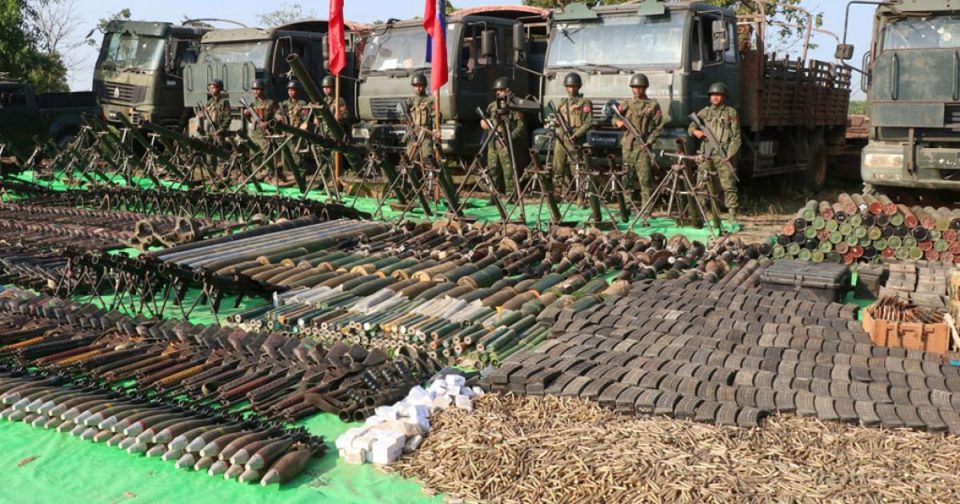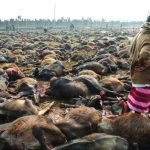One of Myanmar’s most powerful ethnic minority armed groups, the Arakan Army, has announced it has captured the last military outpost in the strategic town of Maungdaw, gaining full control over the 271-kilometer (168-mile) border with Bangladesh.
This development solidifies the Arakan Army’s control over northern Rakhine state and reflects its ongoing campaign for self-rule amid the country’s civil war, which has intensified since the military ousted the elected government of Aung San Suu Kyi in 2021.
Khaing Thukha, a spokesperson for the Arakan Army, informed the Associated Press via text from an undisclosed location that the group seized the military outpost on Sunday. The outpost’s commander, Brig.-Gen. Thurein Tun, was reportedly captured during the incident as he attempted to flee.
The situation in Maungdaw remains difficult to confirm independently, as internet and mobile services in the area have been largely disrupted.
Since June, the Arakan Army has launched an offensive in Maungdaw, which is located around 400 kilometers (250 miles) southwest of Mandalay, Myanmar’s second-largest city. Earlier this year, they also captured the towns of Paletwa and Buthidaung along the Bangladesh border. As of November 2023, the group had achieved control over 11 of Rakhine’s 17 townships, as well as one in neighboring Chin state.
The town of Ann, which houses a crucial military headquarters overseeing western Myanmar, appears to be on the verge of falling to the Arakan Army. In a statement released via Telegram, the group claimed it had taken over more than 30 military outposts, except for the western command responsible for Rakhine and southern Chin state, as well as for territorial waters in the Bay of Bengal.
Recent violence in Rakhine has raised concerns about potential renewed brutality against the Rohingya Muslim minority, reminiscent of the violent campaign in 2017 that forced at least 740,000 Rohingya to flee to Bangladesh.
The Arakan Army, representing the Buddhist Rakhine ethnic group, has denied accusations of human rights violations, though witnesses have reported troubling incidents to the press. The Rohingya, who have lived in Myanmar for generations, face widespread discrimination and are largely regarded as illegal migrants from Bangladesh by many in the country’s Buddhist majority.
The border between Myanmar and Bangladesh stretches from the land along the Naf River to offshore in the Bay of Bengal. The Arakan Army announced the suspension of transport across the Naf River to prevent individuals—mainly police and local Muslims affiliated with the military—from escaping to Bangladesh by boat.
The group has faced serious allegations of human rights abuses, particularly following its seizure of Buthidaung in mid-May, where it was accused of forcibly displacing around 200,000 residents, largely Rohingya, and burning down most buildings. In August, it was also accused of attacking Rohingya civilians fleeing from violence in Maungdaw.
In addition to its activities in Rakhine, the Arakan Army is part of an armed ethnic alliance that launched an offensive in northeastern Myanmar in October last year, securing strategic territory along the border with China.
Credit: CNN




